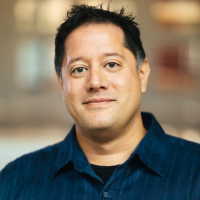
Education
-
duration
4 Years
-
format
In-Seat
-
location
Charleston
Program Overview
Whether you dream of becoming an elementary school teacher or working with middle and high school students, our program helps you develop the knowledge, skills, and disposition to become an effective and inclusive educator.
Today, the need for strong, committed, and enthusiastic educators is more important than ever. The goal of our program is to help you develop the confidence to make a difference to the children and families that you will work with.
Our unique program provides field experience beginning your freshman year, small classes, and experienced and accessible faculty to support you throughout your journey.

Education Program Options
Teacher Education Program (certification track) includes:
Elementary Education (K-6)
Students develop the skills to become an effective educator for kindergarten through 6th grade elementary school classrooms.
Elementary Education (K-6)/Early Education (Pk-K)
This double major helps students develop the skills to become an effective educator for kindergarten through 6th grade elementary school classrooms and developed specialized skills to work in preschool classrooms.
Elementary Education/Special Education (K-6)
This double major helps students prepare to reduce barriers to learning, provide appropriate supports for all learners, and be able to accommodate the needs of diverse learners. Certifications earned are K-6 Elementary and K-6 Multi-categorical Special Education.
Secondary Special Education (5-Adult)
Students work to obtain a multi-categorical Secondary Special Education certification, with content endorsements in Mathematics, English, and History.

Freshman applicants with a 2.5 or higher high school GPA and transfer students with a 2.0 or higher cumulative college GPA are eligible for general admission to UC and will gain direct entry into this program. Students may apply online or download the admissions application.
Program Highlights
-
The program offers several options – a double major, adding a minor, pursuing dual certifications – to focus your career goals and increase your marketability.
-
Field experience begins freshman year to help you have a successful college experience.
-
Faculty represent all facets of public K-12 education and include award-winning teachers, administrators, and curriculum specialists with experience in a wide variety of content areas and certifications.
-
Small classes encourage participation and offer a supportive atmosphere.
Program Outcomes
-
Careers and Beyond
Teaching Certification students will, upon graduation, be qualified to teach in a public or private school setting based on your certification and grade-level area. Our graduates have become teachers, administrators, curriculum specialists, and state department of education employees.
Our graduates go on to attend programs across the country to obtain master’s degrees and beyond.
-
Many graduates work in the following states:
- Connecticut
- Florida
- Illinois
- Kentucky
- Maryland
- Mississippi
- Ohio
- Pennsylvania
- Virginia
- West Virginia
Additional Information
You will learn the skills necessary to be certified to teach in an elementary classroom for grades Kindergarten through 6th grade. Our education faculty will provide you with the opportunity to develop the knowledge, skills, and dispositions to become an effective educator and classroom teacher.
You can add options to your programs for dual certifications, double majors, or minors to increase your marketability and focus on career goals.
Admission Requirements Note: Freshman applicants with a 2.5 or higher high school GPA and transfer students with a 2.0 or higher cumulative college GPA meet our general admissions requirements, but must complete the program-specific requirements for admission into the program.
Becoming a teacher is a serious endeavor. To be admitted to the program, you must first complete the requirements necessary to be formally admitted to the education department by the end of your sophomore year. Later in the program, you will need to apply to the state to student teach. There are also required comprehensive exams.
To be admitted to the Department of Education, you must first be admitted to the University of Charleston.
After you have gained general admission, and decide to apply to our Department of Education, you’ll need to take courses during your first two years that satisfy our Education core requirements. For a full list of those requirements, please see our Academic Catalog.
This double major prepares you to become an effective educator for elementary school students and develop the specialized skills to work with younger learners in preschool classrooms.
Becoming a teacher is a serious endeavor. To be admitted to the program, you must first complete the requirements necessary to be formally admitted to the education department by the end of your sophomore year. Later in the program, you will need to apply to the state to student teach. There are also required comprehensive exams.
To be admitted to the Department of Education, you must first be admitted to the University of Charleston.
After you have gained general admission, and decide to apply to our Department of Education, you’ll need to take courses during your first two years that satisfy our Education core requirements. For a full list of those requirements, please see our Academic Catalog.
To be more marketable in the teaching field, teacher candidates will often pursue more than one teacher certification, which allows them to teach in different areas. This double major provides you with two certifications: K-6 Elementary and K-6 Multi-categorical Special Education.
You’ll learn to reduce barriers to learning, provide appropriate supports for all learners, and acquire methods and strategies to accommodate the needs of diverse learners through adaptations, modifications, and proper assessment.
Field experiences begin freshman year, with ethnically and economically diverse students in rural, urban, and suburban schools where you’ll have multiple chances to interact with a wide variety of teachers and classrooms.
Through this program, you will earn three of the five content endorsements supported by the WV Department of Education to meet the Highly Qualified teacher credential.
Upon completion of this degree, you will be prepared to teach Secondary Special Education in Social Studies, Mathematics, and English classrooms. Note that this is a certification in Multi-categorical Special Education only, and it does not lead to certification in general Secondary Education.
NOTE: All UC students have the opportunity to obtain a Secondary Multi-categorical Special Education certification, regardless of their major. They must complete the Education Core Requirements, Special Education Requirements, and at least one of the content endorsement area options.
The University of Charleston is a member in good standing of the Association for Advancing Quality in Educator Preparation (AAQEP), a national accrediting organization recognized by the Council for Higher Education Accreditation. The University of Charleston is working toward accreditation of its educator preparation programs under the AAQEP standards with an anticipated quality assurance review in spring 2024.
To be eligible to enroll in student teaching or internship, the candidate must meet the following requirements:
- Receive full admittance to the Department of Education.
- Submit application approved by the Chair of the Department of Education within the first month of the semester before the planned student teaching experience (See application link).
- Complete a minimum of 96 semester hours of appropriate credit with an overall 3.0 GPA if earning a certification area degree or overall GPA of 2.75 if earning a non-certificate area degree.
- Complete at least 3/4 of the total course requirements in a teaching content area plus EDUC 320, Integrated Methods course.
- Complete all required professional education and teaching specialization courses with no less than an overall 3.0 GPA if earning a certification area degree or overall GPA of 2.75 if earning a non-certificate area degree.
- Take and pass the Praxis Core exams (reading, writing, math) and any Praxis II content exams required for your certification area; candidates must also pass the Praxis Principles of Learning and Teaching (PLT) exam to graduate.
- Obtain Unit (Division of Arts & Sciences) approval to student teach.
- Demonstrate competence in the content specialization as indicated by performance on the PRAXIS II: Subject Assessment Test(s) and the Principles of Learning and Teaching. To graduate passing scores must be received no later than the end of the clinical practice semester (not required for non-certification area degrees).
- Meet all criteria to obtain the required Student Teaching Permit from the West Virginia Department of Education (not needed for non-certification area degrees).
Note: Candidates seeking a certification area degree cannot be concurrently enrolled in student teaching and have recorded deficiencies in any academic course work or be trying to retake Praxis Core measures that were previously failed. Candidates seeking a non-certification area degree cannot be concurrently enrolled in internship and have recorded deficiencies in any academic course work.
Classes are offered on a rotational semester basis for all education program areas (Elementary Education, Elementary/Special Education, Secondary Special Education, and Elementary Studies and Child Development). Due to uncontrollable circumstances, this rotation schedule may change for a variety of reasons (e.g., course no longer offered, low enrollment, rotational change).
Also, candidates who seek to complete their major program area in less than four years must accept responsibility for monitoring their degree plans and should plan to meet with content faculty on a semester basis. If a student fails or drops a course or fails to take a recommended course in the rotation, it will be challenging to accomplish this goal of early program completion.
Transfer students should also be aware that courses may not always be available on their timeline.
West Virginia Student Education Association (WVSEA)
This association consists of education students who desire to pursue a career in education. The purpose of this association is to help future teachers develop an understanding of the education profession, stimulate high ideals of professional ethics standards, and attitudes, and engage in community-wide service projects. UC students can join free of charge, and meetings occur in the fall and spring semesters. UC’s SEA sponsors all Education Program Professional Development. See www.wvea.org for more information.
Pi Lambda Theta Education Honor Society
Education students who are eligible may apply for admission to Pi Lambda Theta, the National Education Honor Society. Members receive connection to outstanding education professionals who can open doors for future employment; a personalized certificate and gold honor cords to wear at graduation; eligibility for scholarships to support undergraduate or graduate students; and access to low-cost professional liability insurance that covers students during clinical observations and preservice teaching assignments.
The EdUCation Club
This student-governed club creates opportunities for UC Education students to serve the Pk-12 learning community, support one another in Education content mastery and best practices, and make connections as friends, classmates, and colleagues.
Educational Professional Preparation Advisory Committee (EPPAC)
EPPAC is composed of public school teachers, school administrators, students, graduates, and Arts & Sciences faculty, and other community representatives who meet one time every semester to review program changes, policies, and procedures as well as to make recommendations about the program. The faculty select education Program students based on their academic record and positive dispositions.
UC students have the opportunity to apply and work in the ASC during the fall and spring semesters. The ASC provides all UC students with guidance and feedback on their written and oral communication skills and offers workshops in a variety of communication areas.
Impact Measures (CAEP Standard 4)
Measure 1: Impact on P-12 Student Learning and Development (Component 4.1)
The state has not yet provided impact data. WVTPA scores are consistent from year to year (candidates are expected to be at the “Emerging” level).
Measure 2: Indicators of Teaching Effectiveness (component 4.2)
- WV Teacher Performance Assessment Task 6 data: available Summer 2019
- UC Department of Education WV Teacher Performance Assessment Task 6: Impact on Student Learning
Measure 3: Satisfaction of employers and employment milestones (component 4.3)
Employer survey data from 2015-16 is available. UC is awaiting more recent survey data from the state to address this measure.
Principal Survey Results
Measure 4: Satisfaction of completers (component 4.4)
- Graduate Survey Results 2015-16
- Graduate Survey Results 2016-17
- Graduate Survey Results 2017-18
- Graduate Survey Results 2018-2019
- Graduate Survey Results 2020-2021
Measure 5: Graduation Rates
Measure 6: Ability of completers to meet licensing (certification) and or any additional state requirements
Measure 7: Ability of completers to be hired in education positions for which they have been prepared
Measure 8: Student loan default rates and other consumer information
Meet the Faculty
Meet the Faculty

Education Program Director; Assistant Professor of Education

Field Placement Coordinator; Assistant Professor of Education
On March 18-20, University of Charleston will host an accreditation visit by the Association for Advancing Quality in Educator Preparation (AAQEP). In preparation for the visit, the AAQEP Quality Review Team is soliciting public comment about the quality of educator preparation provided by the University of Charleston. All comments must be submitted by February 19, 2024 through the AAQEP website: Submit Comment


